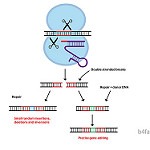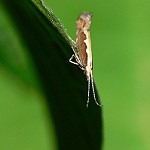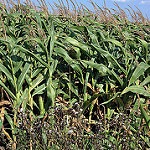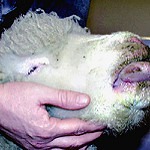
GM/Biotech Crops Report – June 2017
1st June 2017- GM/Biotech Crops Monthly Reports (BELOW) form part of BCPC’s free three-tier Biotech Crops Info service.
- This service also includes a weekly round-up of news from around the globe – see BCPC Newslink GM Crops section.
- Plus – Free access database on over 300 GM/biotech products covering 23 crops in the global market visit BCPC’s GM/Biotech Crops Manual – Register here for free access.
Already registered? Click here
GM/Biotech Crops Monthly Report June 2017
 Source: Chris Tse | The secrets of the tea genome revealed The genome of the tea plant was a tough nut to crack but a team in China (where else!) have managed it and are a long way to understanding how the tea plant generates it various flavours. More |
|---|---|
| A strange way to combat resistance One way to combat pest resistance is to create refuges for the susceptible individuals so that they can maintain the susceptible genes in the population. Now a collaboration between the University of Arizona and China has found that hybridising GM lines with non-GM strains can produce a mix of both GM and non-GM lines. When the seed is sown the non-GM plants act as refuges but why not just mix GM and non-GM seed? More |  Source: Jonas Tona |
 Source: Infinite Ache | Barley genome published Apparently the barley genome is twice the size of the human genome but it has now been fully sequenced and published. It is expected that this knowledge will help guide breeders to optimise genetic diversity in the crop. More |
| Potatoes with blight and nematode resistance to be evaluated in Norwich DEFRA has granted The Sainsbury Laboratory permission to field test modified Maris Piper lines. These potatoes have multiple resistance genes to blight and so it is hoped that this resistance will be more robust than previous lines which only had single resistance genes. More |  Source: Snickclunk |
 Source: Biosciences for Farming | CRISPR-Cas 9 editing to become even more useful CRISPR-Cas 9 editing has delivered many benefits in edited crops but not all cell types or tissues can be accessed by this technique. Now researchers at a University in Georgia have included a cell-penetrating peptide to the system which will allow the technique to be used on a much wider range of tissues. More |
| Benefits of the Zika virus The Company that created part of the control system for reducing the population of mosquitoes transmitting the Zika virus has now applied the same techniques to the Diamondback Moth. This is a serious global pest of many vegetable crops that has allegedly developed resistance to 95 pesticides so new control methods are welcomed. More |  Source: Brad Smith |
 Source: Niccolo Caranti | Perhaps we are better off out of Europe MEPs in Europe have vetoed plans to import maize and cotton from GM crops grown elsewhere in the world. One of the objections raised was the high level of glyphosate residues in many of the crops. More |
| The ‘On switch’ for plant’s own immune system found Boosting a plant’s own immune system has long been the holy grail of disease resistance and it now looks like researchers at The Sainsbury Laboratory in Norwich have found the key, at least in rice. More |  Source: makou0629 |
 Source: Daniel Vogelsong | Lower glyphosate residues in GM Crops One of the objections to importing GM maize or cotton into Europe is the high level of glyphosate residues present in these crops. Now it looks like the Chinese may have solved this problem too. More |
| Bluetongue virus vaccine Bluetongue is a viral disease of ruminants, both wild and domestic that occasionally makes the news here in the UK. Now researchers in Cape Town South Africa have engineered some plants that manufacture a vaccine. Do the ruminants just have to eat the plants? More |  Source: AJ Cann |
THE LATEST ADDITIONS TO THE GM/BIOTECH DATABASE ARE:
- MON88701 x MON88913 – Cotton with glyphosate, glufosinate and dicamba tolerance approved for feed use in South Korea.
- MON87403 – Maize with increased ear biomass approved for food use in South Korea.
- VCO-01981-5 – A new transformation event – Maize with glyphosate tolerance due to insertion of a synthetic gene approved for food, feed and environmental use in USA and Canada and for feed use in South Korea.
FOR INSTANT ACCESS TO GM BIOTECH MANUAL CLICK HERE (Registration required)
Already Registered? Click here to access

